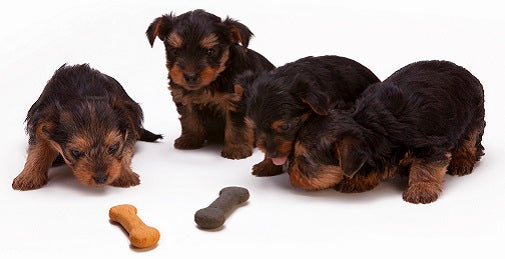
When you purchase pet food, it’s important to make sure the food you’re buying is actually safe for pets. Commercial pet foods sometimes contain ingredients that could be harmful or unhealthy for pets, so it's important to understand the ingredients in your pet's food. The next time you need to get pet food, avoid buying those that have one or more of the following ingredients.
Corn
Corn is a common ingredient found in commercial pet foods, but it’s not due to its nutritional value. Corn serves as an inexpensive ingredient that provides these foods with a higher calorie count. As a pet food ingredient, corn doesn’t provide important nutrients, such as protein or fat that can be converted into energy. It’s a starchy carb that can cause symptoms in pets who are allergic to corn.
Wheat
Wheat in pet foods is another ingredient that shows up often in commercial pet foods. This ingredient provides pets with fiber, but it can lead to health issues for some pets. While it’s not likely to cause health problems in most pets, it can cause symptoms in pets with a wheat or grain allergy. These symptoms, which include skin inflammation, itchiness, hair loss and sores, can make dogs uncomfortable.
Soy
Soy is often added to commercial pet foods to increase the amount of protein they provide and add calories. However, soy isn’t necessarily considered a pet safe ingredient in pet foods. Some pets have sensitivities or allergies to soy, which can cause health issues when they consume pet foods that have this ingredient. Soy might also cause problems with the endocrine system or thyroid in some pets. Quality meat ingredients are the best source of protein for pets.
Animal By-products
Animal by-products appear in most commercial pet foods, since this type of ingredient is inexpensive to add for protein, fat and calories. By-products are used in both canned food and kibble, so it’s important to check the labels on any pet foods you’re buying. Animal by-products include the scraps that are left over after processing meat, which can have questionable quality. Those that are considered inedible for humans to eat can still be added to pet food.
Unspecified Meat Sources
Meat sources in commercial foods that are safe for pets should always be listed. When meat sources aren’t specified, keep in mind that they can come from many sources, including road kill, diseased livestock and even euthanized animals from shelters. Always look for a specific source of meat, such as chicken or beef, rather than ingredients listed as meat meal or meat by-product meal.

Comments (0)
Back to Blog